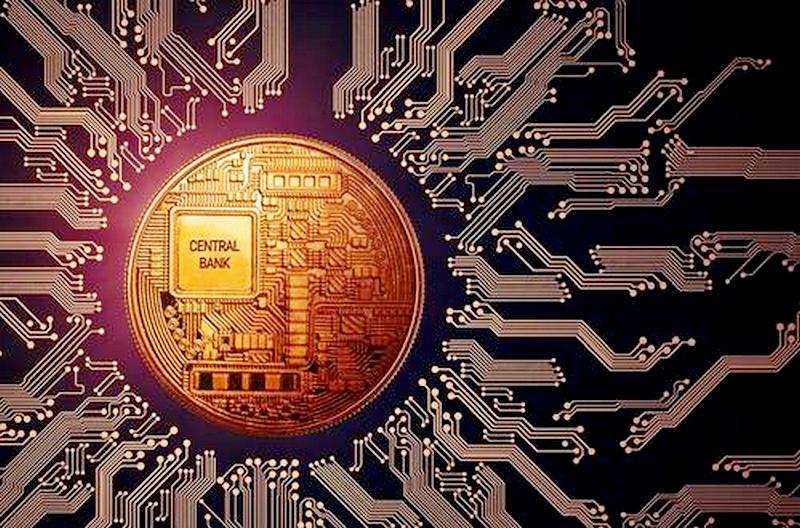If The Fed Starts A Digital Currency, It Had Better Guarantee Privacy



ZeroHedge - BY TYLER DURDEN - TUESDAY, APR 05, 2022 - 10:00 PM
Authored by By Andrew M. Bailey & William J. Luther via RealClearPolicy.com,
President Biden’s latest executive order calls for extensive research on digital assets and may usher in a U.S. central bank digital currency (CBDC), eventually allowing individuals to maintain accounts with the Federal Reserve. Other central banks are already on the job. The People’s Bank of China began piloting a digital renminbi in April 2021. India’s Reserve Bank intends to launch a digital rupee as early as this year.
Cash is a 7th-century technology, with obvious drawbacks today. It pays no interest, is less secure than a bank deposit, and is difficult to insure against loss or theft. It is unwieldy for large transactions, and also requires those transacting to be at the same place at the same time — a big problem in an increasingly digital world.
Nonetheless, cash remains popular. Circulating U.S. currency exceeded $2.2 trillion in January 2022, more than doubling over the last decade. The inflation-adjusted value of circulating notes grew more than 5.5 percent per year over the period. And U.S. consumers used cash in 19 percent of transactions in 2020.
Why is cash so popular, despite its drawbacks? Cash is easy to use. There are no bank or merchant terminal fees associated with cash. And, most importantly, it offers more financial privacy than the available alternatives.
When you use cash, no one other than the recipient needs to know. Unlike a check or debit card transaction, there’s no bank recording of how you spend your money. You can donate to a political or religious cause, buy controversial books or magazines, or secure medicine or medical treatment without much concern that governments, corporations, or snoopy neighbors will ever find out.
Privacy means you get to decide whether to disclose the intimate details of your life. Some will happily share. That is their choice. But others will prefer to keep those details private.
In a digital world, personal information can spread far and wide. And it can be used to exclude or exploit people on the margins. The choice about what information to share is important. For some, flourishing depends on carefully choosing how much others know about their politics, religion, relationships, or medical conditions.
Financial privacy matters just as much as privacy in other areas. What we do reveals much more about who we are than what we say. And what we do often requires spending money. In many cases, meaningful privacy requires financial privacy.
Privacy also operationalizes the presumption of innocence and promotes due process. You are not obliged to testify against yourself. If law enforcement believes you have done something unlawful, they must convince a judge to issue a warrant before rifling through your things. Likewise, financial privacy prevents authorities from monitoring your transactions without authorization.
The recent executive order, to the administration’s credit, notes that a CBDC should “maintain privacy; and shield against arbitrary or unlawful surveillance, which can contribute to human rights abuses.” But a reasonable person might worry that the government is paying lip service to privacy concerns.
A recent paper from the Fed, offered as “the first step in a public discussion” about CBDCs, suggests the central bank has no interest in guaranteeing privacy at the design stage. Instead, it maintains that a “CBDC would need to strike an appropriate balance [...] between safeguarding the privacy rights of consumers and affording the transparency necessary to deter criminal activity.” The Fed then solicits comments on how a CBDC might “provide privacy to consumers without providing complete anonymity,” which it seems to equate with “facilitating the illicit financial activity.” A U.S. CBDC, in other words, will likely offer much less privacy than cash.
We do not deny that financial privacy benefits criminals and tax cheats. Such claims tend to be exaggerated, though. In reality, it is a small price to pay for civil liberty. That due process applies to everyone — criminals included — is no reason to scrap the Fourth or Fifth Amendments.
Policymakers may be tempted to compromise on financial privacy when implementing a CBDC. Instead, they should attempt to replicate the privacy afforded by cash. Like non-alcoholic beer, the Fed’s “digital form of paper money” would superficially resemble the real McCoy while lacking its defining feature.
COPYRIGHTS
Copy & Paste the link above for Yandex translation to Norwegian.
WHO and WHAT is behind it all ? : >
The bottom line is for the people to regain their original, moral principles, which have intentionally been watered out over the past generations by our press, TV, and other media owned by the Illuminati/Bilderberger Group, corrupting our morals by making misbehavior acceptable to our society. Only in this way shall we conquer this oncoming wave of evil.
Commentary:
Administrator
HUMAN SYNTHESIS
All articles contained in Human-Synthesis are freely available and collected from the Internet. The interpretation of the contents is left to the readers and do not necessarily represent the views of the Administrator. Disclaimer: The contents of this article are of sole responsibility of the author(s). Human-Synthesis will not be responsible for any inaccurate or incorrect statement in this article. Human-Synthesis grants permission to cross-post original Human-Synthesis articles on community internet sites as long as the text & title are not modified